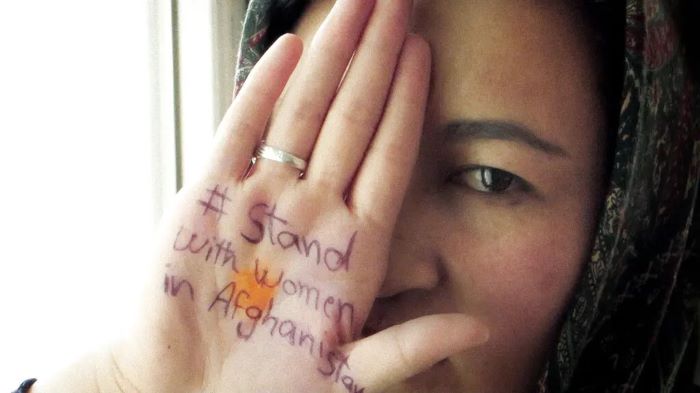There’s an immediacy and a raw, on-the-ground feel in Sahra Mani’s documentary, which primarily chronicles the lives of women after the fall of Kabul to Taliban rule in 2021. The film’s backstory is compelling: Mani was already covertly filming stories of women and girls when producers Jennifer Lawrence and Justine Ciarrocchi reached out, providing personal and financial support to document the unfolding crisis.
The film opens with fleeting joy at the wedding of Zahra, one of its key figures, on August 14, 2021. Later that night, in the early hours of August 15, the Taliban seizes control of the capital city. Mani captures the ensuing chaos: military forces flooding the streets, Afghan flags being taken down, and gunfire echoing ominously.
Soon after, the Taliban imposes sweeping restrictions. Women are forbidden to work, earn income, or attend school, and girls are banned from education. Even smaller, seemingly trivial rules—like prohibiting listening to music while driving—serve as tools of control. In one bittersweet moment, Sharifa, a former government employee and activist, stands by an open window, listening to a song on her phone. She smiles, savoring the music, as if reclaiming a fleeting sense of freedom. Meanwhile, glimpses of Zahra, a dentist, helping those in need are among the film’s most impactful moments. Her underground business becomes not just a medical practice but a potential safe haven for women to gather and organize.
Taranom, a young woman, activist, and friend of Zahra, rallies women for a protest advocating for girls’ education and teachers’ right to work. Through shaky and chaotic footage, we witness the violent crackdown that follows, with some protesters arrested. Despite the grim outcome, the women’s strength and resolve shine as they risk persecution and imprisonment by fearlessly marching in the streets and standing up to their oppressors.
Zahra continues her protests against the closure of schools and universities and the worsening economic conditions for women. Meanwhile, Taranom, forced into exile, relocates to a cramped safe house in Pakistan. As the Taliban’s rule endures, the country spirals toward economic collapse, exacerbated by the prohibition of women from contributing to the workforce. The women featured in the documentary grow increasingly cautious with their activism. In one sobering moment, Zahra tells the camera that if anything happens to her during a demonstration, the Taliban is to blame. Tragically, she is later arrested alongside others. The film also implies the harrowing possibility that young girls detained by soldiers may face abuse.
Notable figures like Jennifer Lawrence and executive producer Malala Yousafzai help draw attention to the film, ensuring it reaches audiences who might otherwise overlook its urgent spotlight on flagrant human rights violations. The documentary effectively avoids outside commentary, talking heads, or excessive voiceovers, which might have diluted its impact. Instead, it remains authentic, raw, and visceral—a stark and unflinching portrayal of resilience amid oppression.

















Leave A Comment